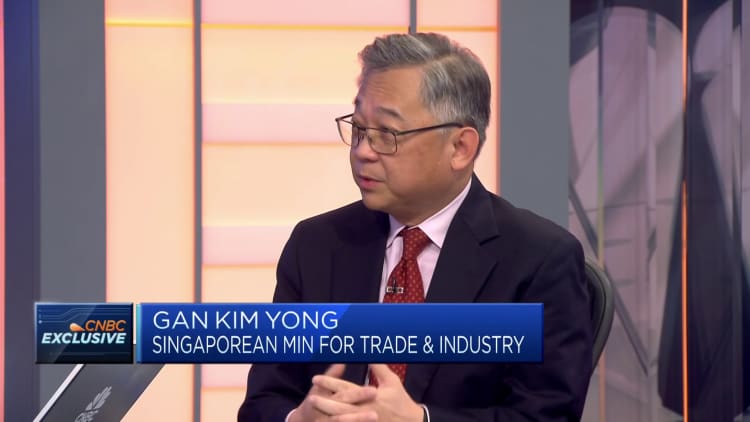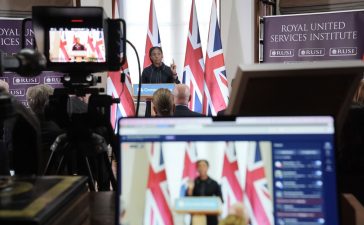
Businesses should continue to focus on China and explore opportunities to expand their presence in the world’s second-largest economy, Singapore Minister for Trade and Industry Gan Kim Yong said Friday.
China had briefly entered deflation territory late last year, and is still struggling with a debt-laden real estate sector.
Ratings agency Fitch cut its outlook on China’s sovereign credit rating to negative on Wednesday, following a similar move by Moody’s in December.
Fitch citied risks to public finances as the economy faces increasing uncertainty in its shift to new growth models.
However, “if you take a deeper look, when I engaged the businesses and the people on the ground, I think the sense it gives me is that China’s fundamentals are strong,” Gan said on CNBC’s “Squawk Box Asia.”
He pointed that China has a huge domestic market, as well as a highly educated and competitive workforce.
The country’s investments in infrastructure will also put it in a good position to recover in the longer term, Gan added.
“So I think in the meantime, in the immediate future, they will see headwinds, but I think in the longer term, the fundamentals remain strong.”
‘Work with whoever’s in the White House’
When asked about Singapore’s relationship with the U.S. in light of tensions with China and the prospect of a second term for Donald Trump, Gan said that Singapore “will always work with whoever’s in the White House,” reiterating a point made by Singapore Prime Minister Lee Hsien Loong earlier in March.
Gan noted that Singapore and the U.S. have a “very long standing relationship,” underpinned by the U.S.-Singapore free trade agreement.
The FTA in 2004 with Singapore was the U.S.’ first with a country in Asia Pacific, and the only such deal with an ASEAN country.
Gan said that between the U.S. and Singapore, “we believe in the rules based trading system, and we will continue to push for collaboration regionally, internationally as well as bilaterally.”
He pointed out that both countries have developed new platforms for collaboration, such as in critical emerging technology, saying that these institutions are long standing, regardless of whoever is in the White House.
“But I must also say that, regardless of whoever is going to be the new president, going forward, there’ll be new challenges, and there’ll be new uncertainties and there’ll be new disruptions. I think that’s the nature of our business and for economic development.” Gan said.









